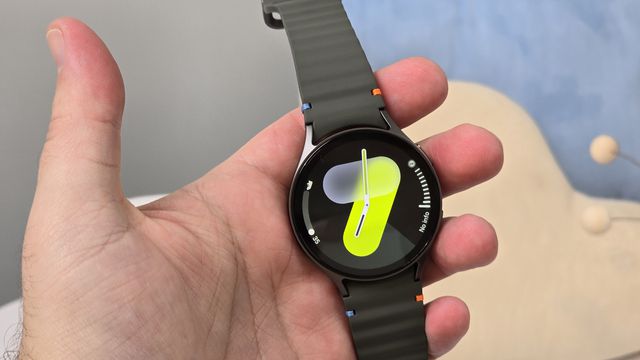DIGITAL LIFE

Smartwatches, or smart watches, are becoming increasingly popular, with many people relying on them to track everything from blood pressure and oxygen levels to physical activity and sleep patterns.
The promise is alluring: a wearable device that can help you live a better, or at least healthier, life.
But do they work and are they accurate?
Let’s start with the measurement they’re perhaps most famous for: counting steps.
“This is what most people associate with fitness trackers and smartwatches,” says Cailbhe Doherty of University College Dublin in Ireland.
Doherty tests smartwatches with her team at the School of Public Health, Physiotherapy and Sports Science.
“Step counting is done using an accelerometer, which is usually based on the movement of your wrist.”
To measure blood pressure, “it shines a light, usually green, through the skin to the blood vessels below.”
“What the smartwatch does is measure the amount of light that is reflected.” This depends on the volume of blood in the blood vessels, which increases and decreases as the heart pumps blood around the body: more blood means less light. “This technology is called photoplethysmography or PPG and it is used for a variety of different biometric results in smartwatches.”
To measure blood oxygen saturation, “the light, instead of being green, is infrared and red. If haemoglobin is bound to an oxygen molecule, it absorbs more infrared light and less red light.” “That’s why it’s so crucial to assess whether smartwatches are accurate,” Rory Lambe, one of the PhD students working with Doherty, told the BBC.
“The gold standard for VO2 max is measured in the lab, but the smartwatch uses heart rate, GPS and also some machine learning to predict or estimate your VO2 max,” Lambe explains. The reliability of the watches in this regard is “one of the key questions we’re investigating”.
Sometimes yes, sometimes no...When it comes to VO2 max, extensive research conducted by Doherty’s team “suggests that there’s between 5% and 13% error, which is actually quite large,” Lambe says.
How reliable are smartwatches in other areas?
“When it comes to things like heart rate or GPS, the accuracy can be quite good.”
But when it comes to sleep, smartwatches aren’t so good, experts say.
“That’s probably because of the number of individual signals you have to take into account to track sleep,” Doherty says.
“Any errors in your heart rate, your breathing rate, the amount of movement you’re doing… all of that adds up. Also, the separation between the original signal, which is ‘dream,’ and the final one, when it gives you the final score for your dream, is much greater.”
How good are smartwatches at measuring energy expenditure — that is, the amount of calories you burn?
“The evidence suggests not,” Doherty replies. "This is probably because the way most smartwatches estimate calories is by using only accelerometry and photometry."
"That is, they measure heart rate and some variation in physical activity through movement. This is very different from measuring the gas someone breathes in and out, which is what is needed to measure calories."
Doherty says: "Essentially, the signal used by the watches is so far removed from the original biometric rhythm that a high degree of error can be introduced."
And when he says "high degree of error" he is not exaggerating.
"Our recent systematic review found that the error can be between 30% and 150%."
That means your smartwatch might tell you that you burned 1,000 calories when you actually burned just over 300.
Accuracy...Sometimes smartwatches are accurate. They are great at measuring something directly, like heart rate or step count. However, not all of the data they provide is measured directly.
Because they can’t measure calories in the prescribed way, for example, they take other measurements and use them to calculate estimates.
These calculations depend on different assumptions made by the device’s algorithm, which can be right or wildly inaccurate.
But how much does the accuracy of these devices matter when it comes to improving our lives and health?
“Looking at step counts, people were taking about 1,800 more steps a day, or walking about 40 minutes a day. People were doing about 6 minutes a day of moderate to vigorous physical activity.”
Motivation, Ferguson says, is something that comes from the outside.
“We’re generally poor judges of our own activity levels, and getting these numbers opens our eyes to reality.
“Even if you’re doing very little, tracking gives you a baseline to work from.”
Their research shows that trackers make people more active. But does it matter if they’re not as accurate?
Ferguson recently conducted a study looking at why some people gave up their smartwatches.
“There was a mix of current and former users. Confidence is important with these devices. A common complaint among those who stopped using them was that they weren’t getting accurate information,” he says.
Accuracy is important because if you don’t trust your smartwatch, you’re more likely to stop using it. But this is technology we’re talking about here, so surely the accuracy of smartwatches can be improved… right? “There are two components: the underlying sensing technology and the algorithms that rely on it to extract a given signal,” Doherty says. “The underlying sensing technologies are unlikely to change much in the near future.”
“However, the algorithms will likely improve because as more and more people start using these devices, the data sets that Apple, Google, and all the other big companies have will get bigger and bigger, and the algorithms will become more refined and therefore more accurate,” he says. By 2024, an estimated 225 million people will use smartwatches worldwide, according to Statista.
mundophone

No comments:
Post a Comment